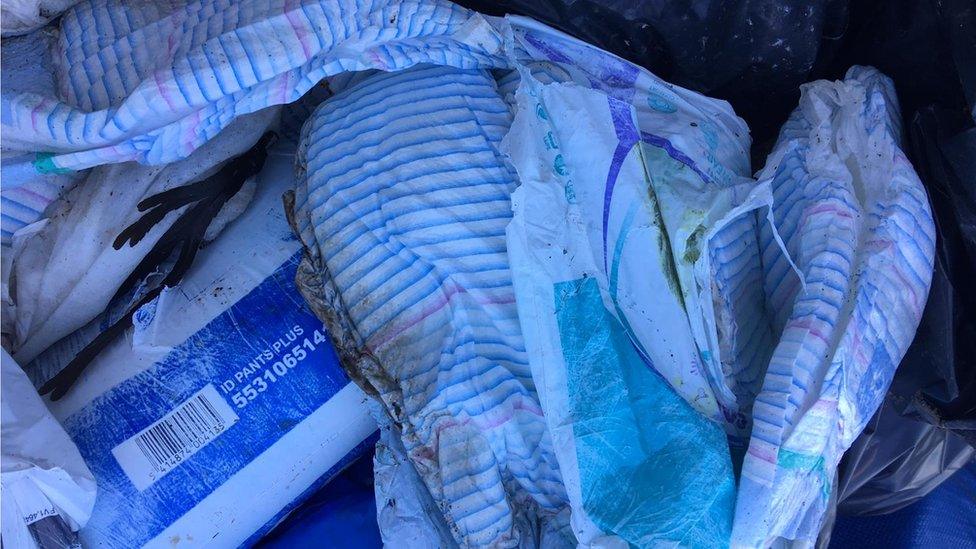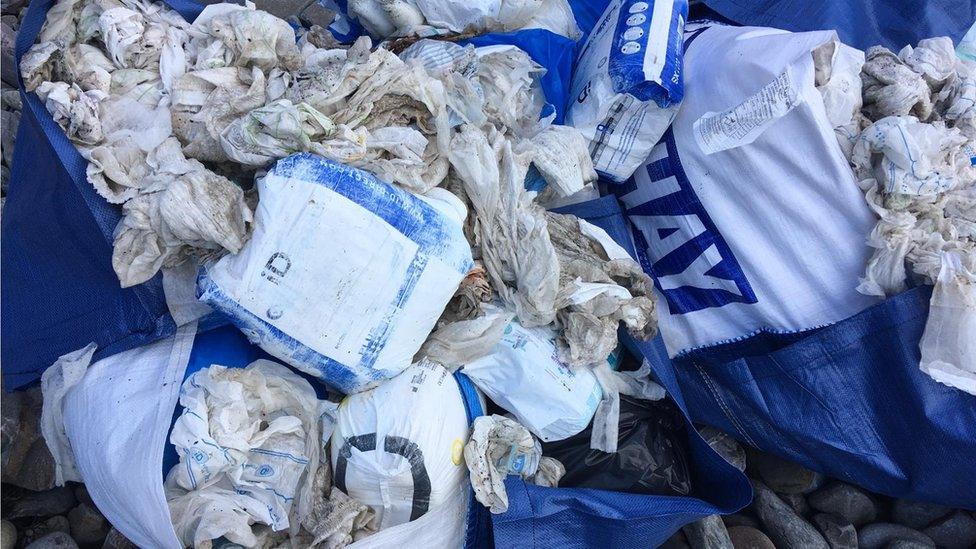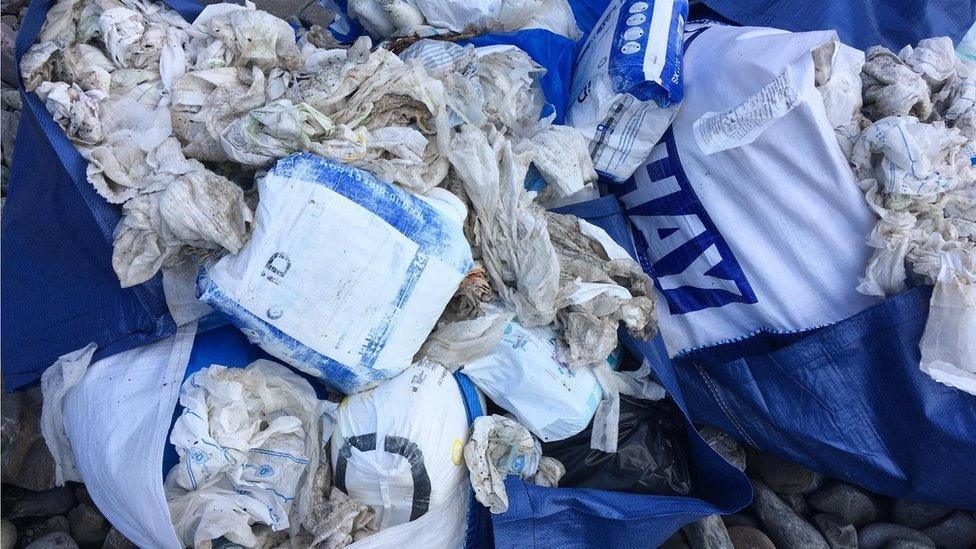Plastic: Cargo loss causing long-term fear for coastlines
- Published
Environment engagement officer Madison Bowden-Parry says it is lovely people have come to help with the clean-up
There are concerns over the long-term effects of plastic pollution along the south Wales coast as sanitary products continue to be washed ashore.
Significant numbers of nappies, incontinence pads and sanitary towels have been found on the beaches of south Gower for the fourth day in a row.
Those arranging to clean them fear it could continue for weeks if not months.
The discoveries were expected after 11, 40ft-long (12m) containers were lost in the Bristol Channel last week.
This morning, dozens of bags of sanitary products washed up once again on Rotherslade and Langland Beaches near Mumbles, as well as on Three Cliffs Bay.
Other sanitary products have been found along the coastline of Vale of Glamorgan and Bridgend, as well as at Aberavon Beach, Neath Port Talbot.
On Wednesday, one container was found near Aberthaw Power Station and another at Monknash, Vale of Glamorgan.
Another container washed up on a beach in Devon and three others were found in the sea.

Nappies were also found in a container that washed up in Devon
There are fears that the deluge of plastic being washed in could continue as four containers broke open and there are a further seven that sank.
"Over time it's quite possible that they will also break open, and in a month's time we could have another wave of stuff being washed in," said Carrie Townsend Jones of Mumbles Community Council.
She has urged people to "keep an eye out" and they will arrange to bring kit down and help with the clean-up.
What happens to microplastics in the ocean?
The community council's engagement officer, Madison Bowden-Parry, has been working with campaigners Surfers Against Sewage to clear up beaches across Gower and said it was "really devastating" to see the container spill.
"The main component of the sanitary products and nappies is polypropylene, which is a really commonly produced polymer.
"Plastic doesn't break down it just breaks apart into smaller and smaller pieces, and that can disrupt the eco-system, marine life and pollute our waters."
The Maritime and Coastguard Agency (MCA) said, of the 11 containers, six were empty and five contained non-hazardous cargoes.
It said some containers may have sunk as not all have been seen during ongoing vessel and aircraft searches.

The council has thanked residents for their help
Bridgend council said it was continuing to work with the MCA to recover the washed-up cargo.
The authority's cabinet member for communities, Richard Young, said he hoped it would be possible to recycle some of the packages and thanked the public for their help in the clear-up operation.
"While we continue to monitor the beaches, a lot of waste has been collected and will be removed from where it is being temporarily stored early this week for processing," he added.
- Published27 October 2020

- Published27 October 2020
